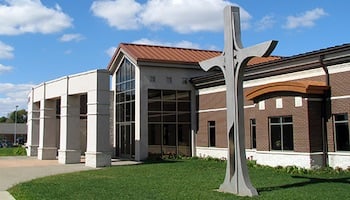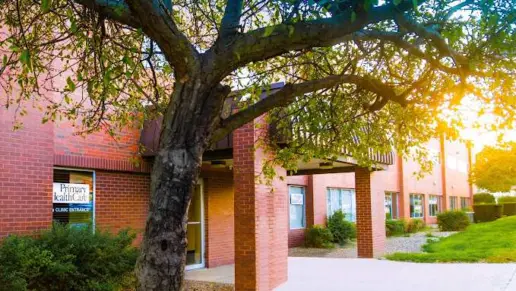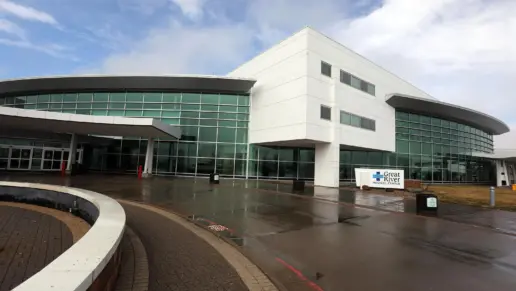I could not be more impressed with Manning and the care they gave me. Believe me, this is the only and best health facilities there are. Thanks to all the great people that helped me out.
About Manning Regional Healthcare Center
The Manning Regional Healthcare Center is a 16 bed, co-ed chemical dependency drug rehab center specializing in treating drug and alcohol addiction. This addiction treatment center is found in Manning, Iowa, and is operated by trusted experts trained to provide substance abuse addiction care. This care involves behavioral therapies and social support to help with long term sobriety.
The thing that differentiates the Manning Regional Healthcare Center from other addiction treatment centers is that it is a department within the critical access hospital.
This means the rehab center’s staff is equipped to handle all addiction cases, including drug and alcohol addiction.
With more than four decades of offering substance abuse treatment programs, this drug rehab can help. To learn more about the programs, read below:
The residential treatment program offered at Manning Regional Healthcare Center provides addiction treatment in an inpatient setting. Those who enroll in this program will be required to participate for about 30 days, and the maximum number of patients treated at any given time is 16, according to Iowa licensing guidelines.
In addition, individuals receive about 31 hours of treatment services weekly alongside two to three hour individual sessions with licensed counselors. Often, treatment plans include family visitations and sessions alongside NA and AA meeting attendance during this program.
The detoxification program offered at this addiction treatment center is dedicated to helping individuals overcome withdrawal symptoms and cravings.
During this program, individuals are medically supervised 24 hours a day in an onsite setting for one to five days, depending on the severity of the addiction. After detoxification, this rehab center will recommend individualized treatment programs and referrals.
Not everyone can leave home for extended periods of time, which the Manning Regional Healthcare Center understands. That’s why they operate an outpatient program with differing addiction treatment timelines.
Typically, the outpatient treatment offered by this rehab center requires nine hours of weekly sessions, lasting between three months to a year, depending on substance abuse recovery needs. These sessions are operated by licensed counselors who work with clients to create individualized programming.
Latest Reviews
Rehab Score
Gallery
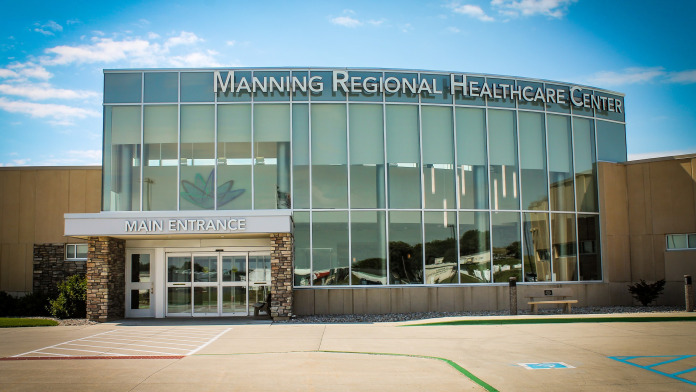
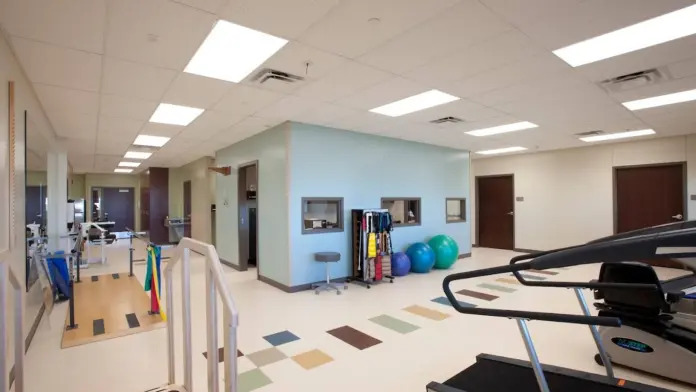
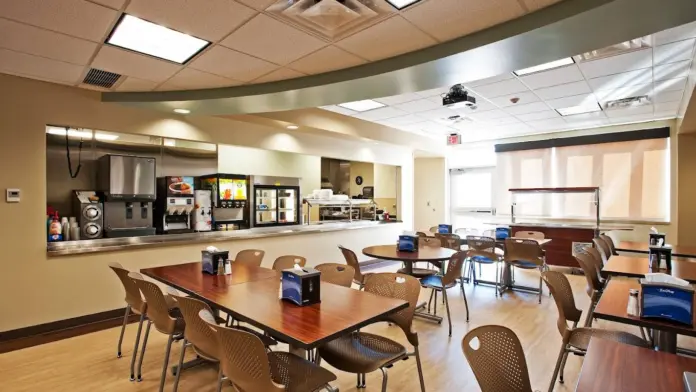
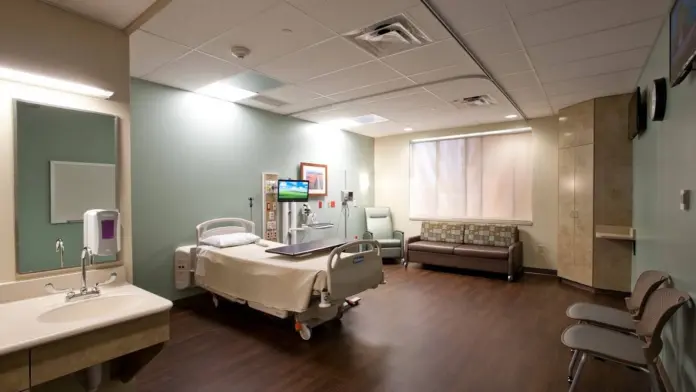
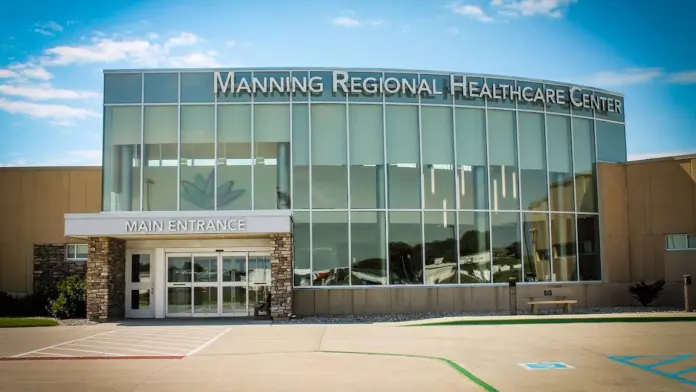
Location
Other Forms of Payment
Private insurance refers to any kind of healthcare coverage that isn't from the state or federal government. This includes individual and family plans offered by an employer or purchased from the Insurance Marketplace. Every plan will have different requirements and out of pocket costs so be sure to get the full details before you start treatment.
Self-pay involves paying for treatment out of your own pocket. You can use savings or credit, get a personal loan, or receive help from family and friends to fund your treatment. If you don't have insurance or your insurance plan doesn't cover a specific program, self-pay can help ensure you still get the care you need.
Medicare is a federal program that provides health insurance for those 65 and older. It also serves people under 65 with chronic and disabling health challenges. To use Medicare for addiction treatment you need to find a program that accepts Medicare and is in network with your plan. Out of pocket costs and preauthorization requirements vary, so always check with your provider.
Medicaid is a state based program that helps lower-income individuals and families pay for healthcare. Medicaid covers addiction treatment so those enrolled can use their coverage to pay for rehab. When a program accepts Medicaid the client often pays very little or nothing out of their own pocket.
Military members, veterans, and eligible dependents have access to specific insurance programs that help them get the care they need. TRICARE and VA insurance can help you access low cost or no cost addiction and mental health treatment. Programs that accept military insurance often have targeted treatment focused on the unique challenges military members, veterans, and their families face.
Addiction Treatments
Levels of Care
Treatments
The goal of treatment for alcoholism is abstinence. Those with poor social support, poor motivation, or psychiatric disorders tend to relapse within a few years of treatment. For these people, success is measured by longer periods of abstinence, reduced use of alcohol, better health, and improved social functioning. Recovery and Maintenance are usually based on 12 step programs and AA meetings.
Drug rehab in Iowa is available in many formats. A variety of inpatient and outpatient options provide programs that are tailored to individual needs, making recovery possible for everyone.
Opioid rehabs specialize in supporting those recovering from opioid addiction. They treat those suffering from addiction to illegal opioids like heroin, as well as prescription drugs like oxycodone. These centers typically combine both physical as well as mental and emotional support to help stop addiction. Physical support often includes medical detox and subsequent medical support (including medication), and mental support includes in-depth therapy to address the underlying causes of addiction.
Substance rehabs focus on helping individuals recover from substance abuse, including alcohol and drug addiction (both illegal and prescription drugs). They often include the opportunity to engage in both individual as well as group therapy.
Programs




Clinical Services
During cognitive behavioral therapy in Iowa, you'll gain a better understanding of your thinking and motivations. Your therapist will then help you develop new patterns of thinking and behaving that allow you to cope with life's challenges without abusing substances.
Group therapy is any therapeutic work that happens in a group (not one-on-one). There are a number of different group therapy modalities, including support groups, experiential therapy, psycho-education, and more. Group therapy involves treatment as well as processing interaction between group members.
Individual therapy sessions offer you a personalized approach that involves an in depth exploration of your life experiences and patterns of substance use disorder. This helps your therapist identify harmful behaviors and thoughts and helps you recognize them so you have a deeper understanding of addiction and make positive changes in your life.
During motivational interviewing in Iowa, the client and therapist collaborate to identify any discrepancies in the client's current situation and future goals. By asking open ended questions and using reflective listening skills, the therapist encourages the client to reach their own conclusions and make a commitment to any needed changes in their life.
Trauma therapy focuses on helping you heal from the psychological impact of witnessing or experiencing a traumatic event. Your therapist offers you support and guidance, which ultimately helps reduce your distress and build resilience.
Research clearly demonstrates that recovery is far more successful and sustainable when loved ones like family members participate in rehab and substance abuse treatment. Genetic factors may be at play when it comes to drug and alcohol addiction, as well as mental health issues. Family dynamics often play a critical role in addiction triggers, and if properly educated, family members can be a strong source of support when it comes to rehabilitation.
Accreditations

The Substance Abuse and Mental Health Services Administration (SAMHSA) is a branch of the U.S. Department of Health and Human Services. Established in 1992 by congress, SAMHSA's mission is to reduce the impact of substance abuse and mental illness on American's communities.
SAMHSA Listed: Yes

State Licenses are permits issued by government agencies that allow rehab organizations to conduct business legally within a certain geographical area. Typically, the kind of program a rehab facility offers, along with its physical location, determines which licenses are required to operate legally.
State License: Iowa
Contact Information
1550 6th street
Manning IA, 51455
